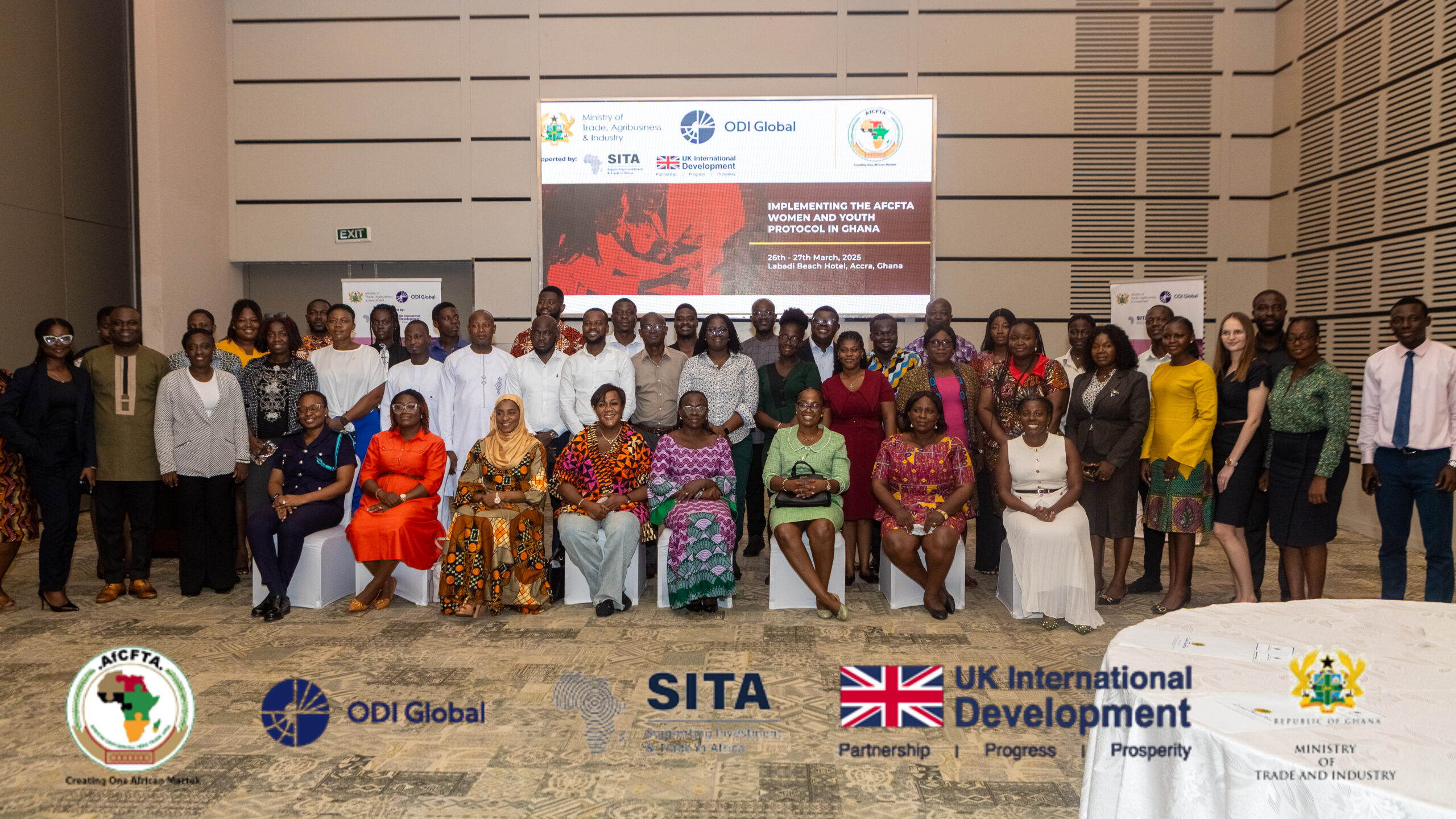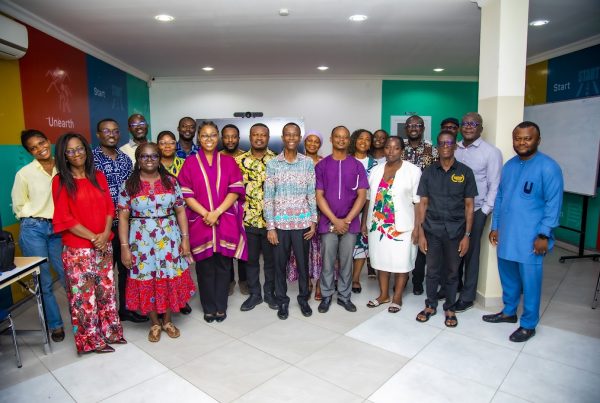ACCRA – APRIL 8, 2025 – Youth Opportunity and Transformation in Africa (YOTA) recently participated in a crucial workshop focused on the African Continental Free Trade Area (AfCFTA) Women and Youth Protocol. The two-day event, held on March 26–27, 2025, at the Labadi Beach Hotel, was hosted by the AfCFTA Secretariat, Ghana’s Ministry of Trade and Industry, and ODI Global.
The workshop brought together stakeholders from the Ghana National Chamber of Commerce and Industry (GNCCI), the British High Commission, Ministry of Trade, Agribusiness & Industry (MOTAI), the National AfCFTA Coordination Office (NCO), Youth Employment Agency (YEA), Ghana Customs, TRADEMARK Africa, and the Centre for Private Sector Development and Inclusive Trade (CPSDIT), among others.
The purpose of the workshop was twofold: to raise awareness about the AfCFTA Women and Youth Protocol and to validate research findings and recommendations from a study conducted by ODI Global and CPSDIT under the UK-FCDO-funded SITA Programme.
Dr. Fareed Arthur, Senior Technical Advisor at NCO, described the Protocol as the first of its kind, incorporating key elements of inclusion to support the participation of women and youth in trade across Africa. The AfCFTA Protocol on Women and Youth in Trade provides a legally binding framework for governments to mainstream gender and youth inclusion into national and continental trade strategies. It supports greater participation of women and youth in trade-related policymaking, promotes skills development and access to trade information, and encourages integration into regional value chains. It also provides for improved access to finance and infrastructure, the removal of non-tariff barriers, and protection against harassment in cross-border trade. The Protocol highlights the need for digital inclusion and explicitly encourages the involvement of youth and women-led enterprises in innovation ecosystems and the AfCFTA market.
The national study presented by ODI Global and CPSDIT at the workshop revealed persistent structural challenges that continue to hinder the participation of women and youth in trade. While Ghana has several national policies geared toward economic empowerment for these groups, the research indicated that the actual implementation and measurable impact of these policies remain limited. Stakeholder consultations confirmed that low awareness of the Protocol, limited digital literacy, lack of access to trade-related information, and high transportation and logistics costs continue to constrain economic participation for women and youth-led enterprises.
To address these issues, the ODI study presented a set of practical policy recommendations. These include the need for simplified trade documentation and processes, the creation of trade toolkits in local languages, and the development of gender-disaggregated data dashboards to track policy outcomes and resource allocation. It also recommended the formation of women-led business clusters and cooperatives, and greater support for access to procurement opportunities through specialised portals and tender platforms. On the financing side, the study proposed fintech-driven, collateral-free credit solutions, enhanced financial literacy programmes, and increased allocation within national credit guarantee schemes. Furthermore, it highlighted the need to invest in community-based rural digital centres, reliable infrastructure such as affordable broadband and solar energy, and targeted mentorship and awareness campaigns through local media and peer-led outreach.
Representing YOTA at the workshop, Eric Saforo, Team Lead for Skills and Innovation, emphasized the importance of aligning the organization’s programmes with such forward-looking policy frameworks.
“The AfCFTA Women and Youth Protocol presents a transformative opportunity for young entrepreneurs across Africa. Through our involvement with YES-PACT, we’re now better positioned to align our programs with national policies and create targeted initiatives that educate young people about the opportunities available under this protocol. The policy recommendations emerging from the ODI research provide us with a valuable foundation for our advocacy work,” he said.
YOTA’s participation is part of its broader role as the Ghana anchor institution for the Youth Employment and Skills Chapter of the Pan African Coalition for Transformation (YES-PACT). YES-PACT, an initiative led by the Africa Center for Economic Transformation (ACET), spans six countries—Côte d’Ivoire, Ghana, Ethiopia, Niger, Rwanda, and Uganda—and focuses on collaborative, evidence-based policy development to address youth unemployment and the skills gap.
YOTA plans to leverage these workshop outcomes in multiple ways. The policy-level insights will guide their advocacy efforts and help align programs with national initiatives. The organization also plans to use its digital platforms to create awareness among young entrepreneurs about the AfCFTA opportunities. The validated research recommendations will serve as a foundation for engaging policymakers to enhance the economic participation of women and youth. Additionally, YOTA will tailor its programming to address specific challenges identified during the workshop.
Following the workshop, YOTA has scheduled a brainstorming session to explore how YES-PACT can incorporate AfCFTA elements into their advocacy work.







